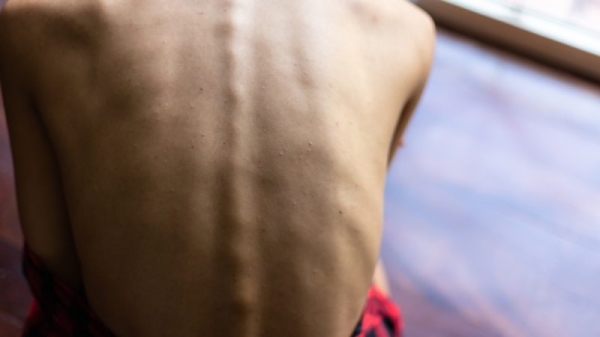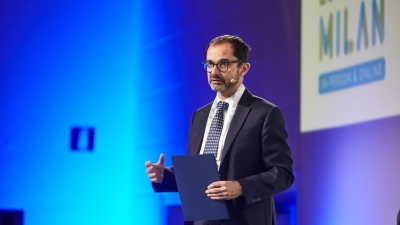Malnutrition risk for two thirds of Slovak hospital patients

Malnutrition impacts almost two-thirds of Slovak patients in hospital care, according to new research. The survey found that despite the extra costs malnutrition creates for the healthcare system, interventions remain minimal.
The Slovak Society for Parenteral and Enteral Nutrition (SSPEV) conducted a project to map the risk of malnutrition in patients during hospitalisation. It found almost two-thirds of patients at risk or currently facing malnourishment. The survey was conducted across seven hospitals (regional, private, and university) and included 752 patients from oncological, surgical, geriatric, neurological, and internal departments.
Its research goal was to highlight issues in clinical nutrition and metabolic disorders in hospitalised patients, from departments more susceptible to malnutrition risks due to loss of appetite following treatment, for example.
The results showed that 23.5% of patients were in a state of malnutrition, 40.6% were at risk of malnutrition, and 35.9% had a normal state of nutrition. In total, 64.1% were in danger or already suffering from malnutrition.
“It is incomprehensible that this problem is downplayed despite the alarming results of the SSPEV survey,” the president of the Association for the Protection of Patients’ Rights in Slovakia (AOPP), Mária Lévyová, told EURACTIV.
Studies show that about one in four adult hospital patients in Europe are at risk of malnutrition or are already malnourished, indicating a pressing need for comprehensive nutritional care strategies.
The Medical Nutrition International Industry (MNI) estimates that costs associated with malnutrition amount to approximately €170 billion in Europe alone.
Current situation in hospitals
Nutrition should be perceived as an integral part of diagnosis and treatment, according to Dr Tomáš Francisty. However, there is no comprehensive management, and it is up to individuals how they approach nutrition and nutrition care.
“More time and space are devoted to determining the priority diagnosis, the setting of pharmacotherapy, surgical procedures, and less space is given to monitoring the balance of the received nutrition and the nutritional needs of the body,” continued Lévyová.
Malnutrition among hospitalised patients can cause increased complications, resulting in a prolonged length of stay, extended recovery periods, higher mortality, and extra hospitalisation costs.
The complications include difficulties with wound healing, tissue regeneration, fighting infections, and impact on the quality of life.
Lévyová elaborated: “If the patient does not get the needed nutrition, his health condition can worsen, and the consequences can be fatal. Patients who are in good nutritional shape see the number of doctor’s visits, hospitalisation, and costs reduced.”
“Within the framework of underfunded Slovak healthcare, we are constantly fighting to improve the availability of parenteral and enteral nutrition for all patients,” she added.
According to MNI, the cost of treating a malnourished patient is more than 2-3 times greater than treating a non-malnourished patient.
“Proper nutritional management can reduce hospitalisation time by more than three days, reduce the percentage of complications by half, and also reduce patient mortality by up to a quarter,” the president of the SSPEV, Dr Juraj Krivuš, highlighted at an SSPEV conference.
Furthermore, nutrition is not just a supplement but is as essential as antibiotics and other medicines.
It requires an individual approach. “It should be personalised; there is no one-size-fits-all regimen,” he added.
A multifaceted problem
Dr Krivuš highlighted that the results might still be conservative and that they are a product of many missing pieces in this part of healthcare.
“We lack healthcare workers, adequate documentation, and monitoring. A proper nutrition screening is not part of the health documentation. There are no control mechanisms or oversight. Patients are not educated on this subject and are not eating enough once released from the hospital,” listed Dr Krivuš.
He concluded: “The costs of enteral nutrition represent only 2% of the budget that goes into patient healthcare.”
Malnutrition in hospitals is not a new phenomenon, according to the AOPP president.
“In the past, together with experts, we have repeatedly addressed challenges and requests to the Ministry of Health, urging them to accept patients’ rights in the area of access to treatment for patients suffering from malnutrition. Legislative and regulatory standards should be adopted that will guarantee these rights,” Lévyová concluded.
Despite the recent survey results and industry actors, including the AOPP, being prepared to aid the Ministry, no major action or regulation is in sight.
[By Filip Áč, Edited by Vasiliki Angouridi, Brian Maguire | Euractiv’s Advocacy Lab]
Read more with Euractiv




